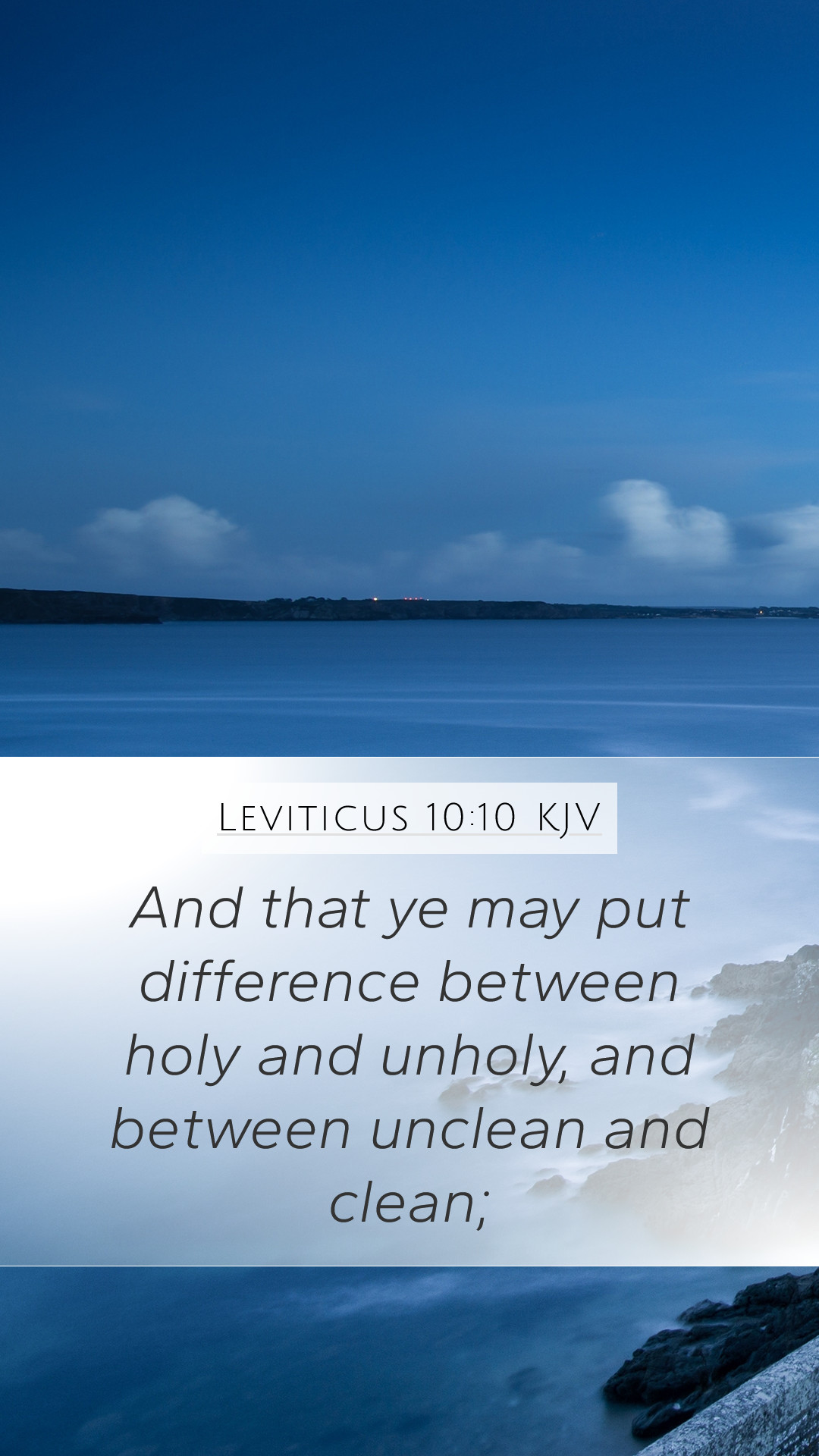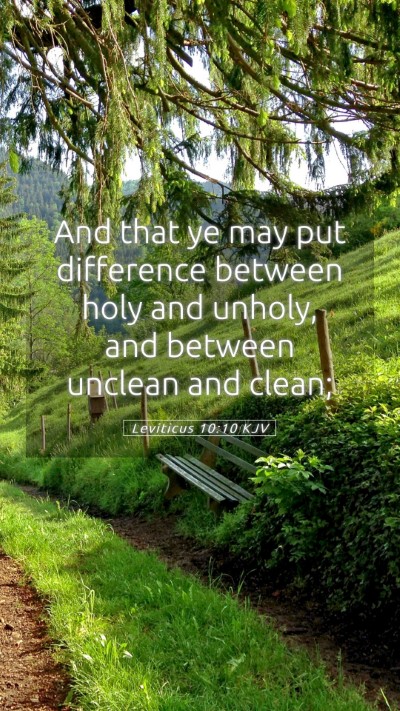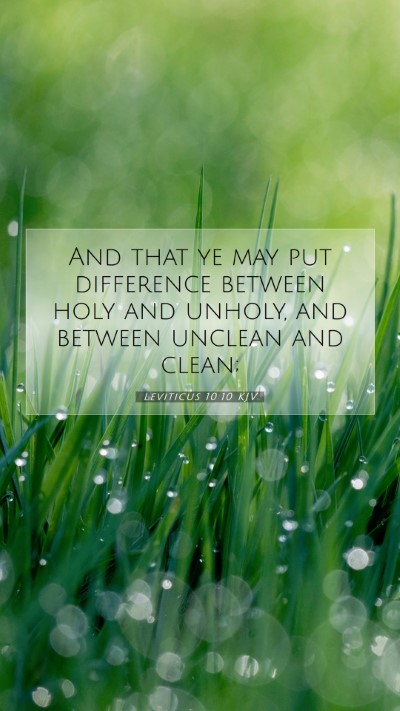Understanding Leviticus 10:10
Bible Verse: Leviticus 10:10
Scripture (KJV): "And that ye may put difference between holy and unholy, and between unclean and clean;"
Meaning and Context
The Book of Leviticus presents laws and regulations given by God to the Israelites, emphasizing holiness, ritual purity, and proper worship. Leviticus 10:10 specifically instructs the priests to distinguish between what is holy and unholy, clean and unclean.
Insights from Public Domain Commentaries
-
Matthew Henry's Commentary:
Henry emphasizes the importance of discernment in religious practices. He notes that priests were entrusted with teaching the people to differentiate between sacred and profane, which was crucial for maintaining the covenantal relationship with God.
-
Albert Barnes' Notes:
Barnes highlights the significance of this distinction as essential for the worship of God. He points out that failing to recognize what is holy can lead to profound consequences, as seen in the preceding context where Nadab and Abihu suffered judgment for offering strange fire.
-
Adam Clarke's Commentary:
Clarke delves into the implications of holiness in the community, underscoring that the ability to discern clean from unclean is foundational for Israel’s worship and lifestyle. He emphasizes that the moral and ceremonial laws are interlinked.
Application of the Verse
Leviticus 10:10 serves as a call for personal and communal discernment. Believers today are encouraged to seek holiness in their lives by understanding what actions, thoughts, and associations lead them closer to God versus those that draw them away. It speaks to the ongoing necessity of evaluating our values and practices in the light of Scripture.
Practical Steps for Application
- Engage in regular Bible study to understand God’s standards for holiness.
- Participate in group discussions to explore the implications of Scripture in daily life.
- Reflect on personal conduct and relationships against biblical teachings.
Cross References
Leviticus 10:10 can be related to the following Bible passages:
- Exodus 30:10: Discusses the atonement for the altar where sacrifices are made.
- 1 Peter 1:15-16: Calls believers to be holy as God is holy.
- Hebrews 12:14: Encourages pursuing holiness without which no one will see the Lord.
Conclusion
Understanding Leviticus 10:10 provides key insights into the nature of holiness and the seriousness of appropriate worship. This verse not only guides the ancient Israelites but serves as a lasting reminder for modern believers to continuously strive for holiness in an increasingly complex world.
Further Studies and Reflection
For deeper exploration, consider joining Bible study groups, participating in online Bible study courses, or utilizing various Bible study tools and resources to enhance your biblical exegesis and understanding of Scripture.


